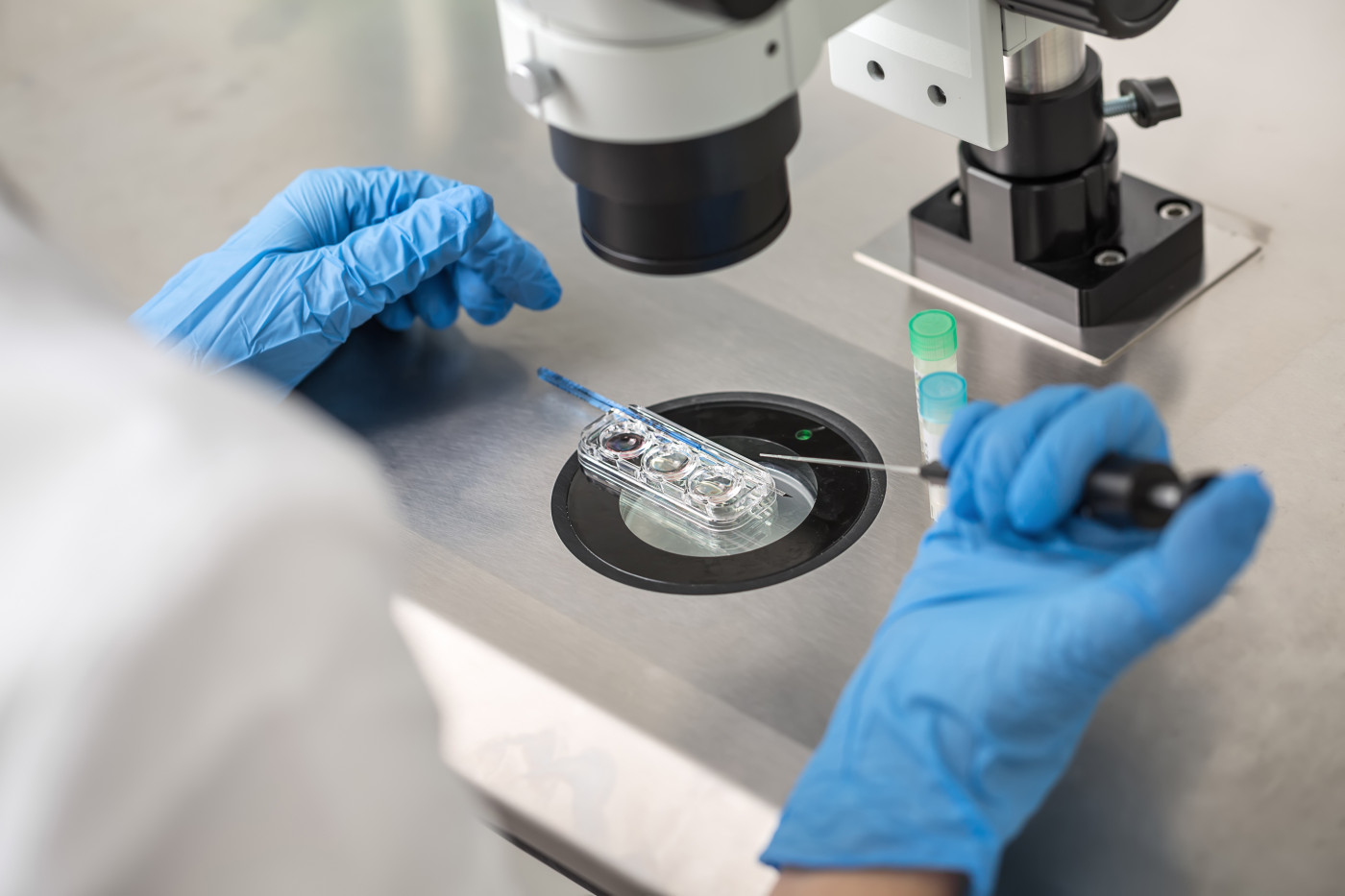FDA Warns Fertility Doctor Against Marketing Three-Parent Embryo Process for Preventing Mitochondrial Disease

The U.S. Food and Drug Administration has warned a New York fertility doctor not to market his controversial three-parent embryo procedure as a way to prevent or cure inherited mitochondrial disease.
Dr. John Zhang, CEO and medical director of New Hope Fertility Center, made international headlines in 2016 when he created an embryo using DNA from a woman, her husband, and an egg donor, then implanted it in the mother, who gave birth in Mexico.
The FDA refers to the three-parent embryo procedure as Mitochondrial Replacement Technology, or MRT. Zhang used it to try to prevent the mother from passing her rare, inherited mitochondrial disease, Leigh syndrome, to the boy she delivered in April 2016.
Zhang and his colleagues published a study about the case, “First live birth using human oocytes reconstituted by spindle nuclear transfer for mitochondrial DNA mutation causing Leigh syndrome,” in the journal Fertility and Sterility.
He reported in a follow-up article that the baby was born healthy and showed no symptoms of Leigh syndrome at seven months. The piece, “Live birth derived from oocyte spindle transfer to prevent mitochondrial disease,” was published in Reproductive Biomedicine Online,
“Long-term follow-up of the child’s development remains crucial,” however, Zhang wrote.
His team performed the procedure in Mexico because U.S. regulators have not approved it, but it is unregulated in Mexico.
Since 2015, Congress has prohibited the FDA from allowing clinical trials of medical procedures that involve a human embryo “intentionally created or modified to include a heritable genetic modification.”
After the baby’s birth, Zhang asking the FDA in writing for a pre-investigational new drug meeting about his technique, which he calls a “spindle transfer for assisted pregnancy in patients with mitochondrial disease.”
The FDA rejected the request. FDA official Mary A. Malarkey wrote that the rejection was because “your proposed human subject research would involve the intentional creation of a genetically modified embryo.” Malarkey is the director of the FDA’s Office of Compliance and Biologics Quality Center for Biologics Evaluation and Research.
Malarkey’s letter noted that Zhang told the FDA in April 2016 that he would not use his spindle nuclear transfer technology to combine DNA in the United States again until the agency grants it investigational new drug status and authorizes a clinical trial of it.
“Despite that commitment, you continue to market MRT to prevent the transmission of mitochondrial disease and to treat infertility,” she wrote.
The FDA letter said evidence of an ongoing marketing effort includes claims on the websites of New Hope Fertility Center and a related research company, Darwin Life.
One notation said the technique can “prevent maternally transmitted diseases, like Mitochondrial Disease, in an unprecedented way,” potentially “yield[ing] the removal of this disease forever.” Another referred to MRT as “a cure for Mitochondrial Disease.” And still another said the technique can “prevent the inheritance of diseased mitochondria. Mitochondrial Disease, also known as Mito-disease, is the primary disorder currently addressed. Other applications will be discussed in the future.”
The letter lists several violations of federal regulations, although it says its examples are “not intended to be an all-inclusive list.” It requests that Zhang respond in writing with “the steps you have taken or will take to address the violations noted above and to prevent recurrence.”






